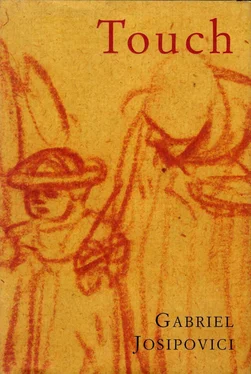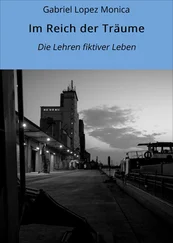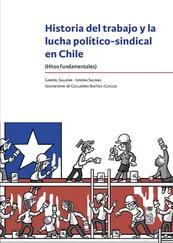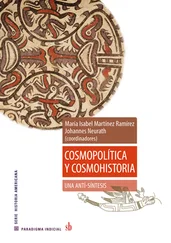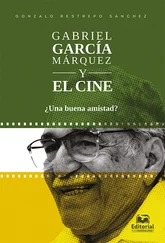Gabriel Josipovici - Touch
Здесь есть возможность читать онлайн «Gabriel Josipovici - Touch» весь текст электронной книги совершенно бесплатно (целиком полную версию без сокращений). В некоторых случаях можно слушать аудио, скачать через торрент в формате fb2 и присутствует краткое содержание. Год выпуска: 1996, ISBN: 1996, Издательство: Yale University Press, Жанр: Современная проза, на английском языке. Описание произведения, (предисловие) а так же отзывы посетителей доступны на портале библиотеки ЛибКат.
- Название:Touch
- Автор:
- Издательство:Yale University Press
- Жанр:
- Год:1996
- ISBN:0300066902
- Рейтинг книги:5 / 5. Голосов: 1
-
Избранное:Добавить в избранное
- Отзывы:
-
Ваша оценка:
- 100
- 1
- 2
- 3
- 4
- 5
Touch: краткое содержание, описание и аннотация
Предлагаем к чтению аннотацию, описание, краткое содержание или предисловие (зависит от того, что написал сам автор книги «Touch»). Если вы не нашли необходимую информацию о книге — напишите в комментариях, мы постараемся отыскать её.
Touch — читать онлайн бесплатно полную книгу (весь текст) целиком
Ниже представлен текст книги, разбитый по страницам. Система сохранения места последней прочитанной страницы, позволяет с удобством читать онлайн бесплатно книгу «Touch», без необходимости каждый раз заново искать на чём Вы остановились. Поставьте закладку, и сможете в любой момент перейти на страницу, на которой закончили чтение.
Интервал:
Закладка:
Celibacy means freedom, but it also means loneliness. Sterne's cavalier way with the conventions of novel-writing may mean the release of the spontaneous, but it also means that he is constantly skirting the abyss of arbitrariness or even meaninglessness. It is Toby's uncertainty, his wavering between alternatives, his lack of his brother's dogmatism and self-confidence, which saves him and keeps him human, just as it is Sterne's own awareness of the ease with which freedom can turn into meaninglessness which keeps his book alive and saves it from becoming a simple exhibition of cleverness. Toby's whistling, Trim's gesture with his stick, Sterne's introduction of black and marbled pages into his book — all these are poised at the junction of triumph and despair, and they remain moving and interesting precisely because they somehow signify both. Sterne's art, like that of Rabelais, requires exquisite touch precisely because both of them take seriously the fact that, with the demise of genre and of the boundaries established by tradition, art now has to make its own rules as it goes along.
22 Boundaries (2)
Over my notebook I sit hunched up. Over my typewriter, a little more upright. My hand moves over the page. My fingers hit the keys. I am writing.
But where is this ‘I’ who is writing? In my heart, which beats strongly as I work? In my head, where thoughts are swirling? In my anxious belly? My straining hand? My tapping fingers? Clearly it is in none of these places. And my sense of the absurdity of the enterprise whenever I try to write autobiography, to explain to myself why I am what I am and where I have come from and where I think I am going, proves to me that it does not reside in my memory either, in any continuity over time.
And yet I know too that those persuasive critics and theoreticians who talk about the death of the author, who argue that it is writing that writes and not ‘I’ — these I know are wrong as well. For when I am not at my desk, hunched over my notebook, a little more upright over my typewriter, it is I who suffer and no one else. And I know too that I can do something about it, can turn that suffering, that frustration, that confused desire, into a state at least as pleasurable as any I have experienced on the football field or in the swimming pool.
But how? Not, it seems, by sheer determination, any massive effort of the will. Not by the daily grind of training. That is the oddity of art, that it is very like sport in so many ways and yet not at all like sport in so many others. For, given a certain predisposition, certain physical attributes, faith in one's abilities and the capacity for hard work, anyone can play tennis or swim reasonably well. There is no equivalent to that in art.
Perhaps there once was. The painter and the composer learnt their craft from a master, as an apprentice, and had to fit their skills to the demands of patrons such as the Church or the nobility. All that has gone. Partly because the system of apprenticeship and patronage has gone, but that is only the symptom of a deeper change. It is no longer a question of fleshing out a given form. The form itself needs to be discovered or invented. And, once invented, needs to be reinvented with each new work.
The sense one gets, reading the letters of the great Romantic and post-Romantic artists — Keats, van Gogh, Kafka — is of enormous energy and desire finding it almost impossible to channel themselves adequately. The swimmer or runner can burn up energy in the pool or on the track and know that each day's work prepares him a little more for the race ahead; but, however much the artist would emulate him, he can't. For what would training mean in his case?
What is he to train for ?
In retrospect of course one can often see a pattern in the career of a great artist. One can see that Proust's flurry of unfinished works between 1897 and 1907 was nothing but a groping towards A la recherche ; that Picasso's whirlwind activity in those same years was leading him inexorably towards Les Demoiselles d'Avignon . But for Proust in those years it was a case of nothing but one failure after another, one confirmation after another that he was not a writer at all; and if Picasso's enormous talent and energy kept him from despair it could not hide from him the fact that he had still not found his real voice.
But how to find that voice, do what one feels one was set on earth to do? Does one, like Rilke, contain oneself in patience, waiting for the day when the spirit will condescend to visit? Or, like Kafka, go on pouring out sketches and fragments, work that refuses to add up, that does not and cannot satisfy, in the vain hope that suddenly one will see what has to be done and how? Or does one, like Coleridge, take the failure to fulfil oneself as the subject-matter of one's poem?
And what is satisfaction? Will it even be recognised when it comes? I know I have reached my goal if I win the race I have been training for, climb the peak I have set myself to climb. But goals in art are less tangible; often it seems unclear if they have been reached at all. Wordsworth and Coleridge, in their moments of dejection, remembered with nostalgia their childhoods and how different it had been then; Eliot, as he saw his work fragment under his hand, despite his best intentions, recalled, equally nostalgically, a culture that had once been unified and was now gone for ever; Kafka, in his later years, remembered with pleasure and despair the night of 22 September 1912, when, in one ten-hour stretch, he had written ‘The Judgement’ and felt it emerging from him as an organic whole, and felt ‘how everything can be said, how for everything, for the strangest fancies, there waits a great fire in which they perish and rise up again’.
To be filled with the desire to make something, with the energy to work harder than ever before, but to be unable to discover what it is one wants to make, what kind of work one should be engaged in — that is the terrible frustration all artists are at one time or another a prey to — and have been since 1800. But it is of course not a frustration specific to the artist. It is a blight which fell on all emancipated westerners in the wake of the French Revolution and the demise of the Ancien Régime.” *European literature in the nineteenth century reflects this malaise, littered as it is with works whose heroes dream of being Napoleon only to discover that they are petty murderers or frustrated clerks. For if anyone can become Napoleon the question then becomes: Why am I still only a clerk? With all that energy boiling up within me, with all that ambition to do something that will make the world sit up and pay attention, why can I not find the thing I need to do? The temptation dangled before so many heroes and heroines in nineteenth-century novels is the temptation of passion: a great all-consuming passion will finally release me from the pettiness of my surroundings, give meaning to my life. But, as Dante saw long ago, though passion may be better than indifference, it may in the end only be a mirage.
Describing in fiction the criminality or folly of a Raskolnikov, an Anna Karenina, an Emma Bovary, did of course bring some appeasement to their creators, just as describing his dejection brought appeasement to Coleridge. But these are local and temporary palliatives, and we should not be surprised at the number of artists who have sought refuge in drink or drugs and, in the wake of addiction, often, in suicide. John Berryman summed it up in one of the finest of his Dream Songs, the 153 rd, his response to the death of his friend, the writer Delmore Schwartz:
I'm cross with god who has wrecked this generation.
First he seized Ted, then Richard, Randall, and now Delmore.
In between he gorged on Sylvia Plath.
Читать дальшеИнтервал:
Закладка:
Похожие книги на «Touch»
Представляем Вашему вниманию похожие книги на «Touch» списком для выбора. Мы отобрали схожую по названию и смыслу литературу в надежде предоставить читателям больше вариантов отыскать новые, интересные, ещё непрочитанные произведения.
Обсуждение, отзывы о книге «Touch» и просто собственные мнения читателей. Оставьте ваши комментарии, напишите, что Вы думаете о произведении, его смысле или главных героях. Укажите что конкретно понравилось, а что нет, и почему Вы так считаете.
